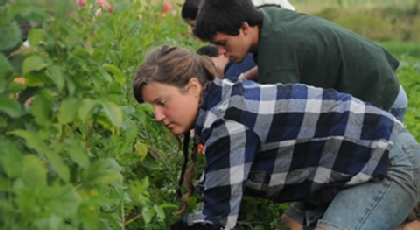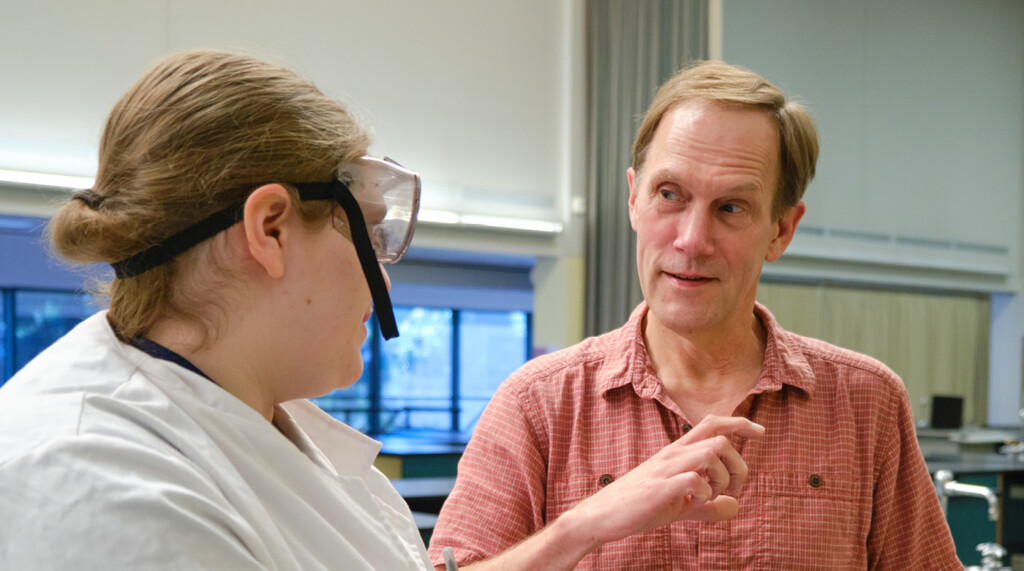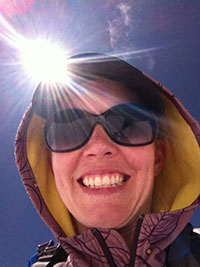Page 149 • (3,684 results in 0.049 seconds)
-
talked a lot about the technical aspects of camera work relating to dance films and dancing for the camera. I used the information I gained from the master class and applied it to my classwork, especially the dance film final project for Composition and Choreography. It helped me think about how to both choreograph and dance for a camera and how this is different than dancing on a stage. —Brooke Nelson ’23, Dance minor Though the circumstances of the year are not what any of us would have chosen, I
-

agencies. Another group took part in a habitat restoration project on the PLU campus. Another trip introduced first-year students to PLU’s own community garden, which donates organic vegetables to members of the Parkland community. Kirk Rose, one of the employees for Left Foot, said he learned about the spirit of service while in college, and it was his love of volunteering and his farming background that brought him to Left Foot about a year ago. Trips to places like Left Foot encourage students to
-

other people.” Gleaning, a centuries-old method of collecting excess produce after harvest, is one example of how food can be distributed and donated to those in need. Local organizations such as Harvest Pierce County conduct gleaning operations aimed at reducing food waste and building community. Since 2009, Harvest Pierce County’s Gleaning Project has harvested more than 300,000 pounds of food to help the community. In addition to gleaning, food-recovery organizations across the country, such as
-

of all the hard work that goes into improving technologies such as batteries,” she says. “It was exciting to work on a project that could help to support the switch away from fossil fuels.” The work centers on polymers — large molecules made up of smaller molecules linked together like a chain — which make up everything from nylon and polyester clothing to Teflon pans. In the future, it may improve lithium-ion batteries.Currently, most lithium-ion batteries use an organic liquid (made of
-

marathon. “Knowing there’s a reason for this, it changes your mindset,” she says about training, “It’s not just working out, you’re working towards something.” As far as the psychological aspect is concerned, Stephens says that, at first, she had “a ton of reservations,” “but not enough to stop me,” she adds quickly. Her parents, she says, were in denial at first, and “my sister thinks I’m crazy.” But the climbers will not be summiting alone. The project will be guided by Rainier Mountaineering
-
off any bugs that may be remaining on the bones. “Erin (McGinnis, director of culinary services) said she had the best phone message ever when she listened to me say “I need a walk in freezer for a whale,”’ Behrens laughed. Eventually the bones that were packed off by animals will be replaced via plaster casts and the entire skeleton will be hung from the ceiling when Rieke is renovated. Thornburg said that when the project was first proposed, no one had any idea how to prepare a whale skeleton
-

explained. Shortly thereafter, Vice President of Student Affairs Joanna Royce-Davis asked Campus Ministry to create an on-campus food pantry. Rude asked Melannie Cunningham, PLU Director of Multicultural Outreach and Engagement, to spearhead the project. Cunningham founded the pantry, originally known as the Blessing Corner, in Spring 2018. Since then, she’s done everything from strategizing around national food insecurity trends to making grocery store runs in order to keep the pantry stocked
-

School of Education’s Uukumwe Project, an educational partnership between Pacific Lutheran University and Namibian educators. And at N/a’an ku sê, Delos Reyes had a unique opportunity: to teach Western music concepts to students who wouldn’t otherwise have access to music education. It was a life-changing experience. “I have never had so much fun teaching in my life,” Delos Reyes says. She loves her current practicum at a small K-8 school outside of Olympia but says the connection that develops when
-

low-resource countries, and the ethics of changing dosing schedules for the human papillomavirus vaccine. The transition from her graduate studies to her current project work has been quite challenging, but it is a challenge she enjoys. “I think it’s going to be pretty similar when I make the transition from postdoc to faculty,” she said. “But I feel like I was exposed to enough at PLU, at Hopkins, through nursing, all of it, to where I have the skills and background to make my way on any new path
-
best they can as not being worthy of so much glory and renown. But their declarations are not accepted, however much they shout, write, publish, and sign them: their words are sculpted in bronze, and the poor fellows remain historic and sublime in spite of themselves. This claim is borne out by examination of the treatment of the first two events in historical literature since Vigny: there are indeed few accounts of the Russian campaign or the battle of Waterloo which neglect to mention them. For
Do you have any feedback for us? If so, feel free to use our Feedback Form.


